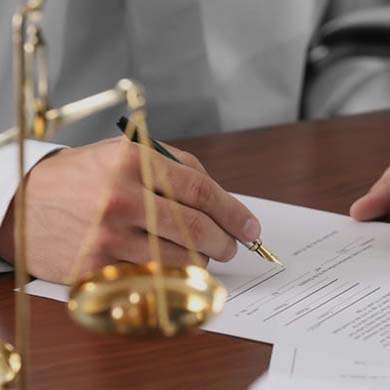File Small Claims Court in Virginia
Virginia officially the Commonwealth of Virginia, is a state in the Southeastern and Mid-Atlantic regions of the United States located between the Atlantic Coast and the Appalachian Mountains. The geography and climate of the Commonwealth are shaped by the Blue Ridge Mountains and the Chesapeake Bay, which provide habitat for much of its flora and fauna. The capital of the Commonwealth is Richmond; Virginia Beach is the most populous city, and Fairfax County is the most populous political subdivision. The Commonwealth's estimated population as of 2018 is over 8.5 million.

Virginia Small Claim Filing
Why do you waste your time energy after a small claim? We are here to take pain for you. We are literate enough about the Small Claims Court System. We will get your claim filed and make you free from worries. We file Virginia Small Claim in the relevant court. We provide proof after the task is completed. Our policy provides individuals and companies peace of mind.
Suing Someone in Virginia Court Or Being Sued?
We, in Virginia Small Claim filing offer in case if you want to file a case against somebody, we can help by:
- Serving Your Small Claims Papers Before The Deadline.
- Serve Your Claim In Proper Legal Way for Virginia Court.
- Fill Your Proof With The Manassas Court.


In case you are sued, we talk to the relevant person or company to settle things down. We appeal your small claim judgment as well.
E-Filing Services inVirginia
Small Claim Virginia E-file your legal documents to Virginia courts that accept E-Filling on your behalf.
Small Claims For Bad Cheque Or Payment in Virginia
Virginia Small Claim settles all money matters reliably and authentically if you are deceived in money matters.
File Small Claims in Manassas For Security Deposit
In Virginia Small Claim, if your former landlord refuses to return the security deposited you paid, we offer our services.
Recent Cases Filed in Virginia Small Claims Court
Virginia Small Claims Filing if Refusing To Pay After A Car Accident
If someone ruins your car in Virginia and refuses to pay for its repair, you can file small claims to recover your car accident damage. Small claims filingprepares all the documents to file a small claim in Virginia court.
Direct Legal Small ClaimService inVirginia
We provide full service of handling of writs both state and federal.
Court Filling Small Claim Virginia Services
Throughout Virginia in the small claims, we offer services to accommodate on the same day, next day or routine service.
Who Can Sue Small Claim In Court Virginia?
Those who can claim for Small Claim Virginia are listed below:
- Married Couples can file small claims in Manassas court.
- Business Partnerships can also file small claims
- Corporations can file small claims
- Government Agencies can file small claims
- Motor Vehicle Claims can be handled
- Minors can also file small claims in the court of Virginia
- Prisoners can file small claims
- Bill Collectors can also file small claims in Virginia
How Much Does It Cost To File A Small Claim Court, Virginia?
There is a $30 filing fee for a case asking for up to $1500. To claim over $1500, and up to $5,000, there is a filing fee of $50. If your claim is above $5,000, the filing fee is $75. If you file more than 12 cases in a year, subsequent cases will cost $100.




